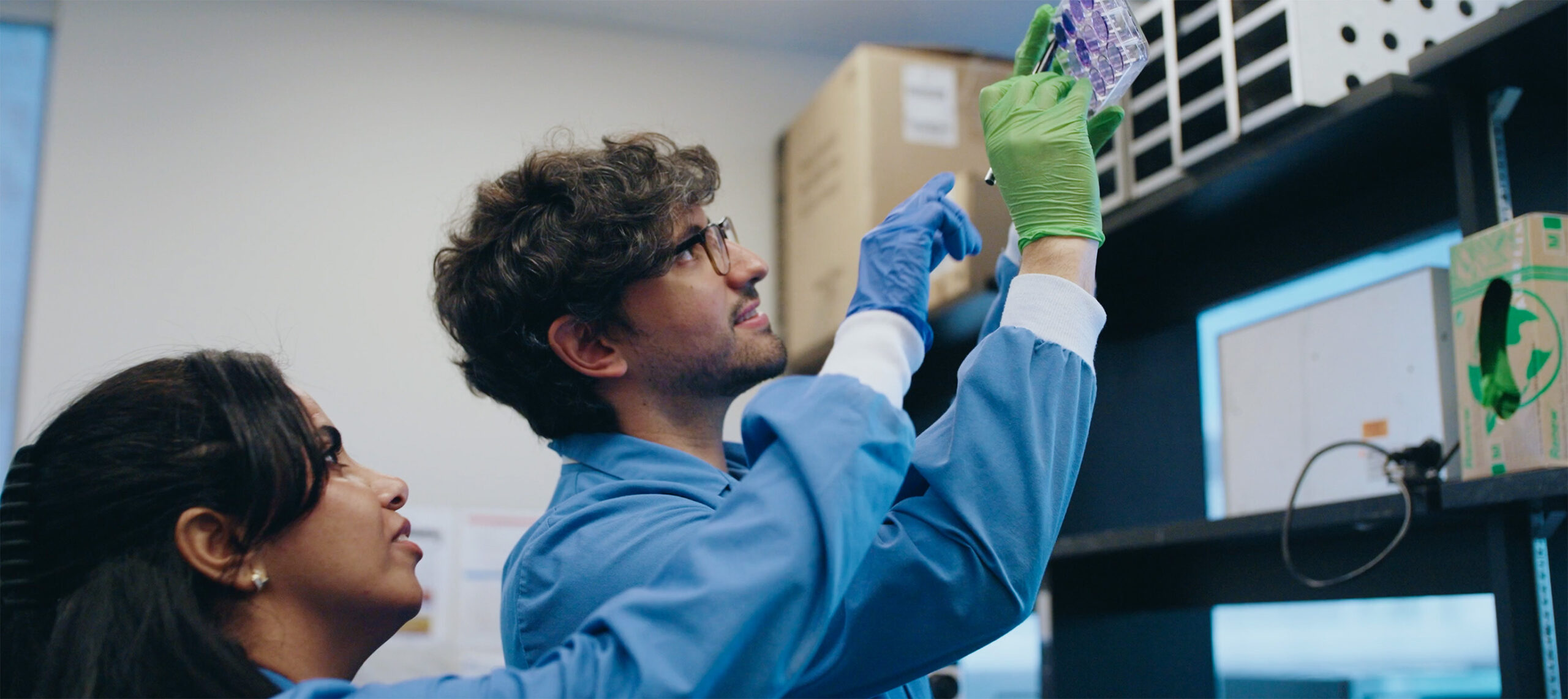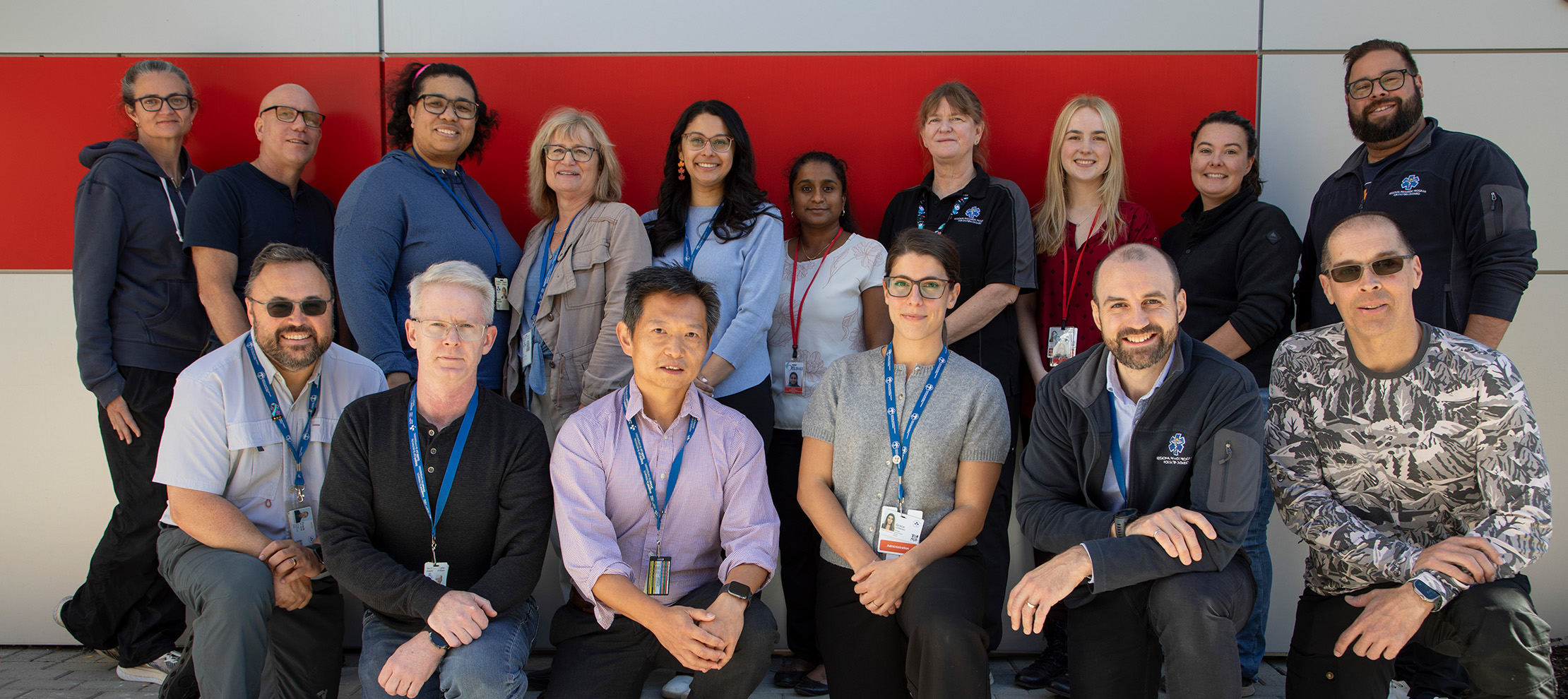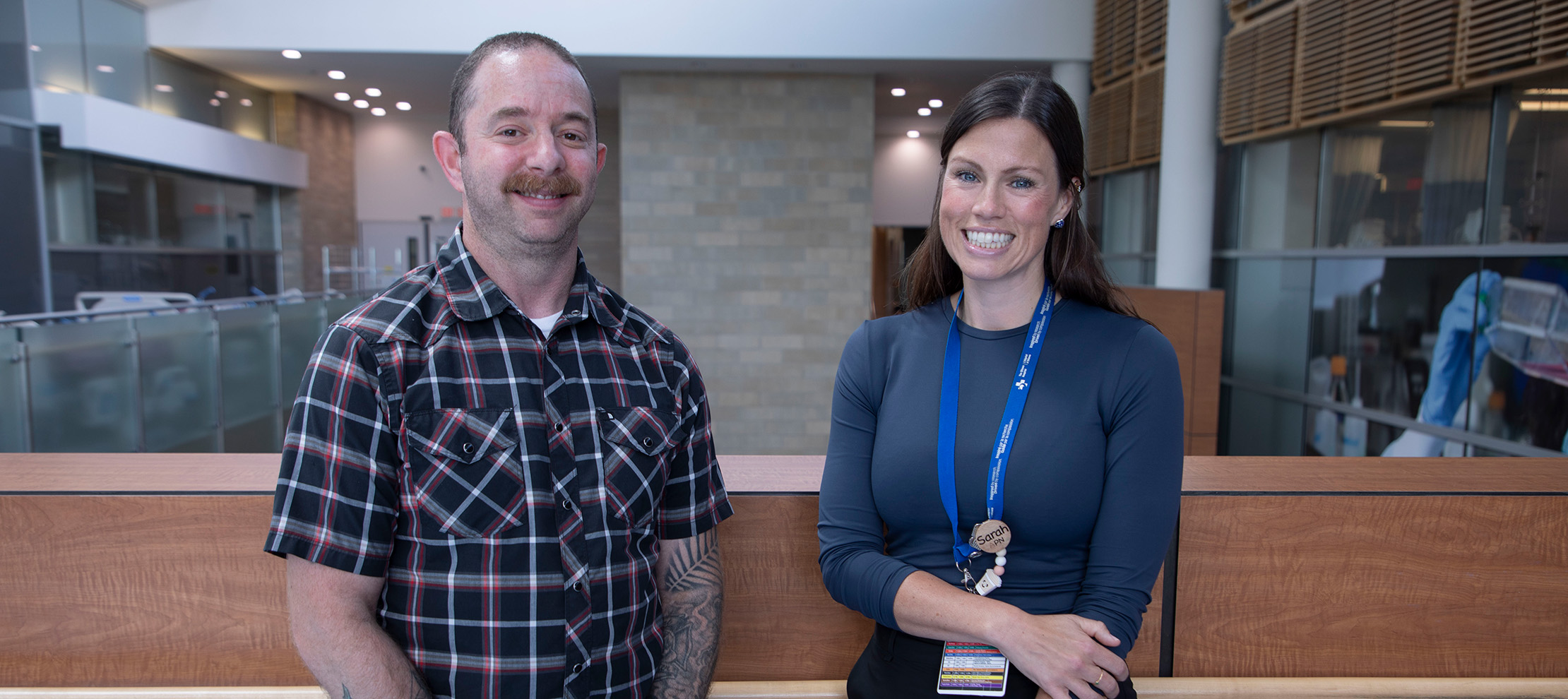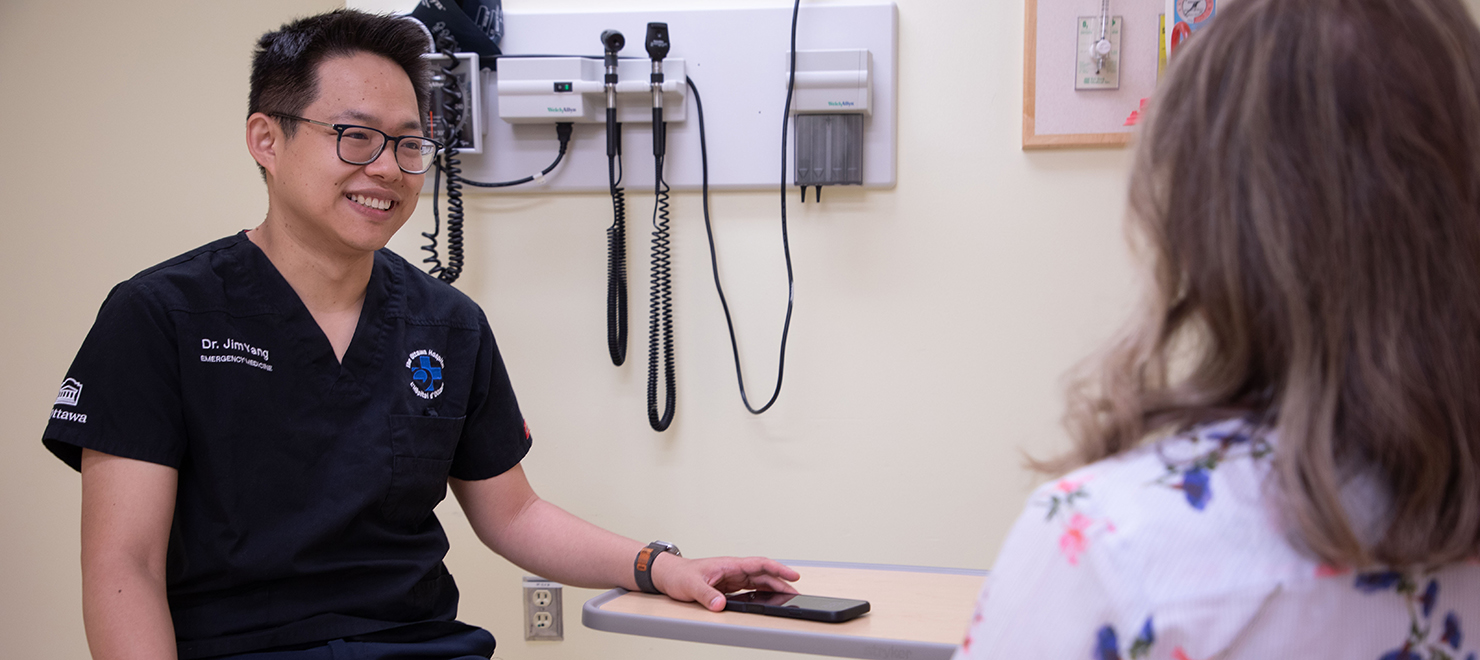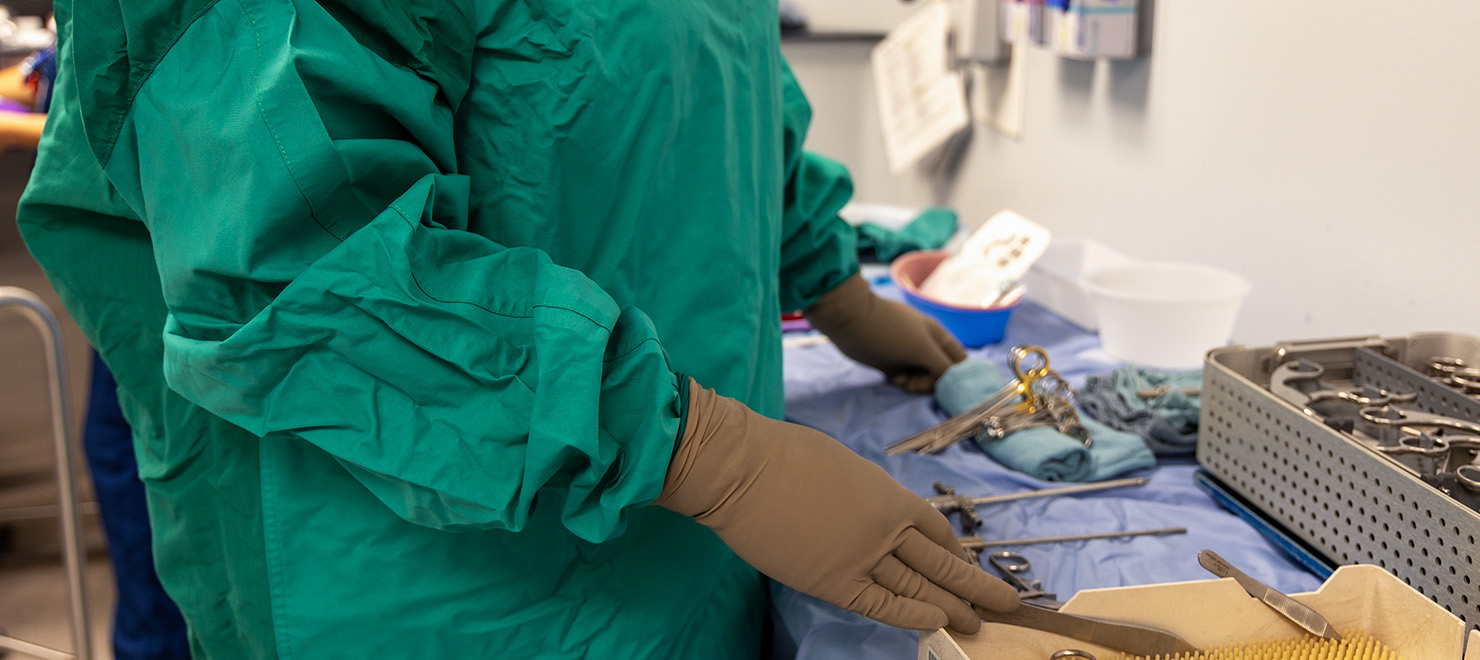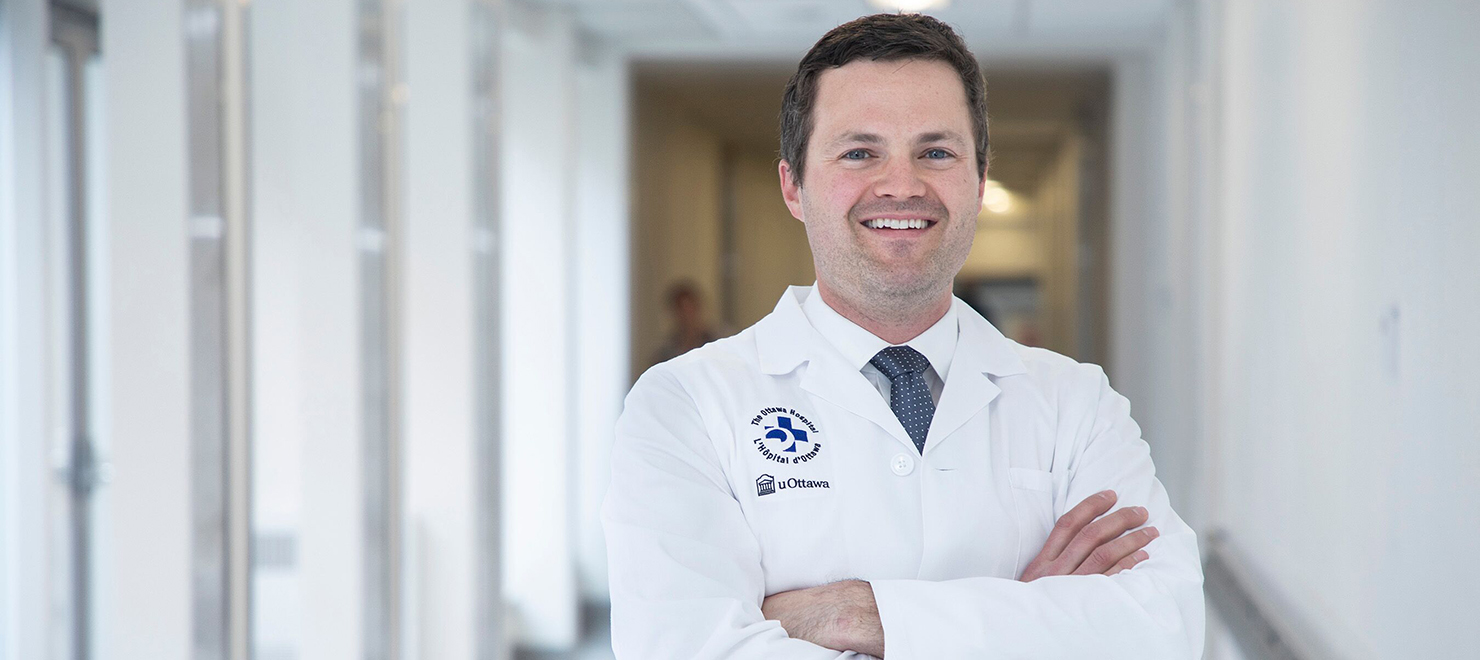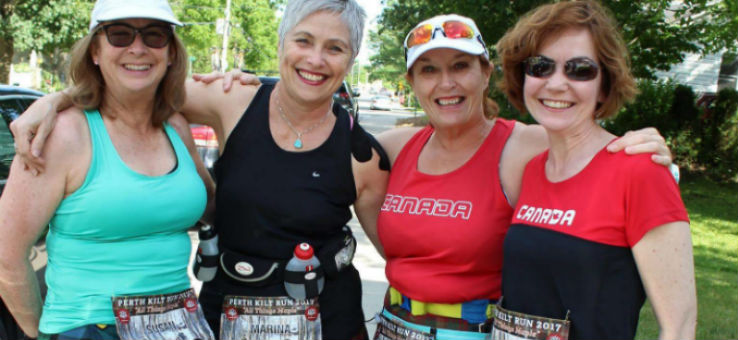
Marina Moraitis (second from left) joined more than 2,000 other tartan-clad runners in Perth’s World Record Kilt Run in June 2017. Fellow kilt-runners included (left to right) Susan Sami, Georgette Houle and Hayley Claassen. Photo by Ian Hunter.
Marina Moraitis has a collection of “bling” – medals she’s won from running road races. Her collection includes a dog tag from the 2017 Army Run and a medal from the 2012 Ottawa Race Weekend Half-Marathon. There’s one medal, however, for a cause very close to her heart. It’s from the 2010 Run for the Cure 5 km, which she trained for while undergoing chemotherapy for breast cancer.
The results of Moraitis’ lumpectomy showed she had infiltrating ductile carcinoma, high grade, stage 2. She had the BRCA1 gene mutation. Because she was at high risk of her cancer spreading, she had a double mastectomy followed by an oophorectomy to remove her ovaries.
During her treatment Moraitis joined two clinical trials run through The Ottawa Hospital. As part of the first trial, she ran three times a week on a treadmill.

Breast cancer patients ran on treadmills during a clinical trial to help determine the importance of cardiovascular exercise while undergoing cancer therapy.
“The idea was to see if exercise helps cancer patients during chemo. It was proven as extremely beneficial,” said Moraitis. “It not only kept me in shape during my treatment, it also helped me focus on training for the 5km Run for the Cure – my goal at the end of the treatment.”
Led by The Ottawa Hospital’s Dr. Roanne Segal, the treadmill-study results showed that patients with breast cancer who did an hour of cardiovascular exercise three times a week felt the best, and Moraitis fit into that category.
The second trial was Dr. Barb Collins’ that looked at the effects of chemotherapy on patients’ brains.
Cancer patients have long claimed that chemotherapy was affecting the way they think. It was like they were in a fog, not thinking clearly – an unproven condition dubbed ‘chemo fog.’
The Ottawa Hospital led the way in being one of the first in the world to do a pre-and-post study of the effects of chemotherapy on the brain. Since then, it has become a huge area of research for different kinds of cancer treatment.

MRIs of patients’ brains, like this one, help determine ‘chemo fog.’
Dr. Collins and her colleagues designed a clinical trial to look at patients before, during and after chemotherapy. Twenty trial participants underwent magnetic resonance imaging (MRI) studies where brain activity was observed while they responded to cognitive questions.
“In the women who received chemotherapy, you could see differences in the patterns of brain activation in the MRI even when they performed perfectly normally on the test. In simplistic terms, the brain is working harder,” said Dr. Collins. “As a result of studies like this one, championed at The Ottawa Hospital, chemo fog is now taken more seriously.”

Marina Moraitis skied on Christmas Eve day 2017 by the Rideau River. Photo by Gina Watson.
Staff at the Breast Health Centre introduced Moraitis to the support group Breast Cancer Action, where she met several other breast cancer survivors. Relationships began to blossom and the women often went for coffee after their exercise class. They became close friends and formed a book club that continues to meet once a month.
Moraitis felt very supported by the programs and staff at The Ottawa Hospital and was inspired to give back, to help future patients have a better chance of survival.
“Without the hospital, I would not have this sisterhood today, which is so important to me. I owe so much to The Ottawa Hospital,” she said. “Participating in the clinical trials was my small way of helping future patients through research and treatments and saying thank you. The support I received was immeasurable – psychologically, physically, and emotionally.”
The Ottawa Hospital is raising funds for cancer research. Your ongoing support is needed to purchase equipment and fund research. Innovative cancer research takes more than the best minds – our researchers need the proper tools to do their vital work.

Support patient care and research at
The Ottawa Hospital
You might also like…
Everyone at our hospital plays a role in research. Here’s how
It’s Research Week at The Ottawa Hospital. Check out this video to hear from some of the incredible people fuelling our discoveries that are having an impact around the world.
How we’re helping over 1,400 paramedics enhance patient care and safety
The Regional Paramedic Program for Eastern Ontario (RPPEO) is on a mission to enhance what happens after you dial 911. Here are three new ways this team is helping paramedics deliver better, safer care to their patients.
New program fills gap in care for teens and young adults with cancer
For young people, a cancer diagnosis can disrupt their education, careers, relationships and family-building goals. Our Adolescent and Young Adult (AYA) Cancer Program supports AYAs on their cancer journey, complementing the care provided by their care team.
Less time charting means more time with patients: How The Ottawa Hospital is using AI to support patient care
“I’m seeing and treating more patients.” Find out how DAX Copilot, a powerful AI assistant, is helping our physicians cut down on paperwork, improve their own well-being and spend more time with patients.
New reusable surgical gowns a step towards greener operating rooms
The Ottawa Hospital is finding safe, innovative ways to reduce medical waste in its operating rooms by using more environmentally sustainable products.
Do you have a surgery coming up? Here are five “prehab” tips to help you recover faster
You’ve probably heard about rehabilitation, but what about “prehabilitation”? Prehab is all about getting your body and mind in top shape before surgery so you can enjoy a smoother, quicker recovery. Discover five essential prehab strategies from researcher Dr. Daniel McIsaac.


 To reset, hold the Ctrl key, then press 0.
To reset, hold the Ctrl key, then press 0.
